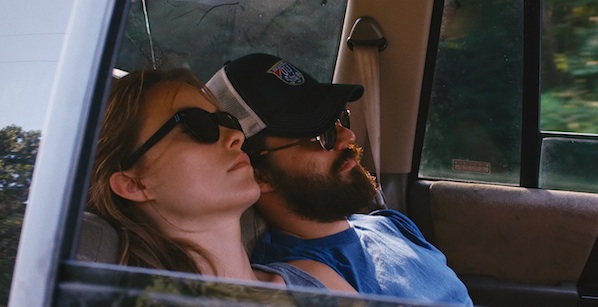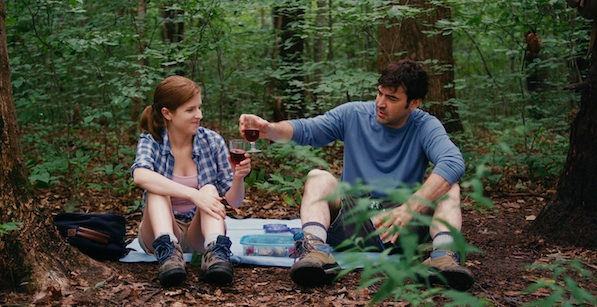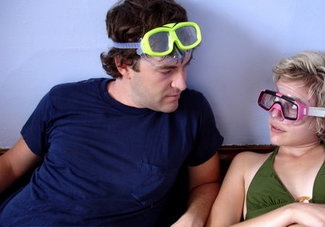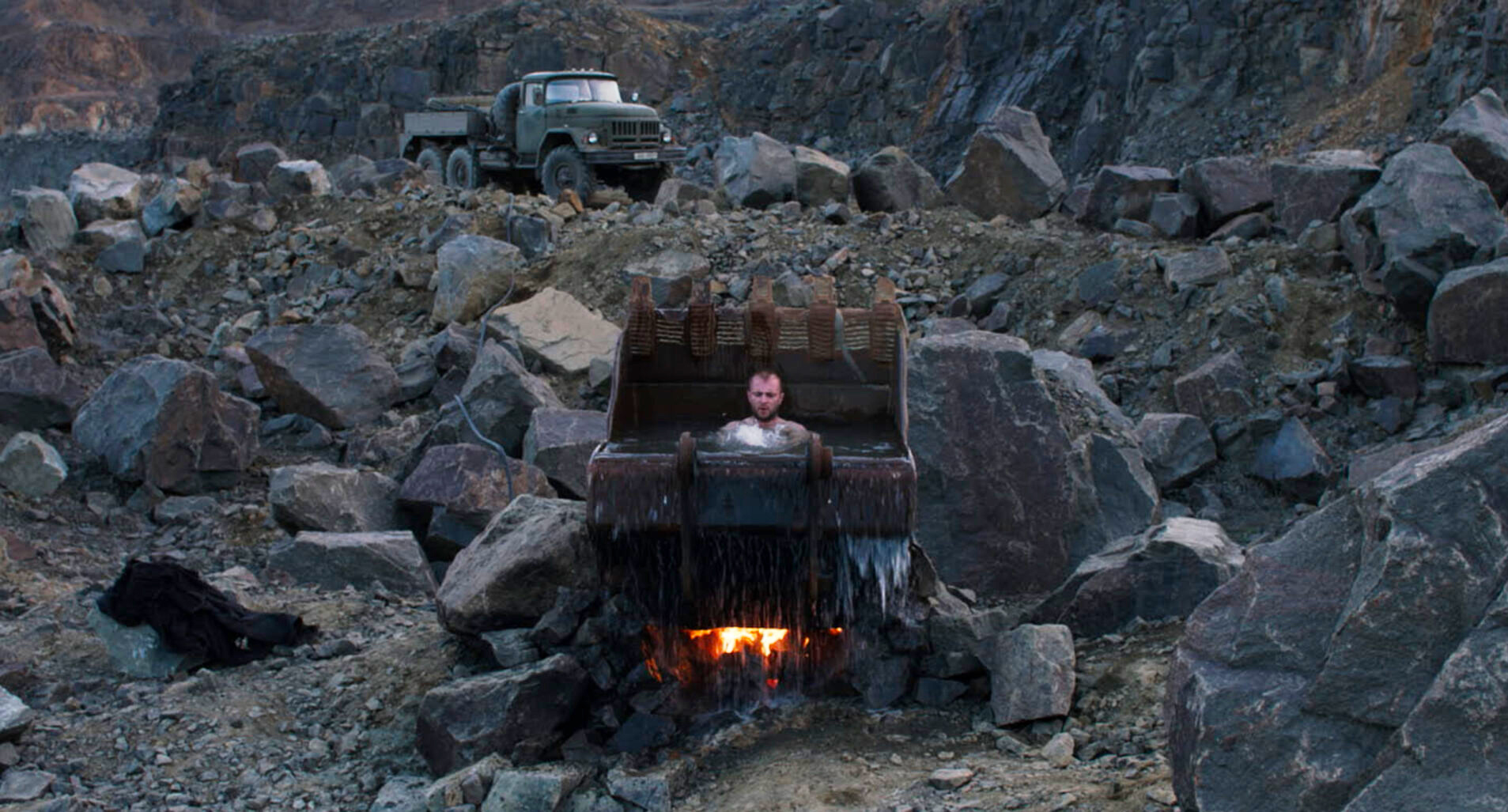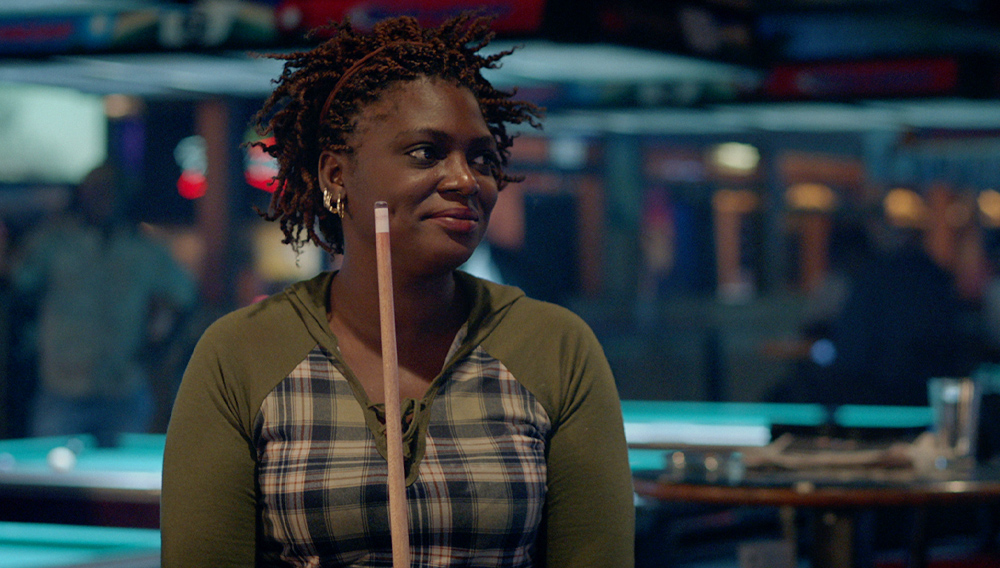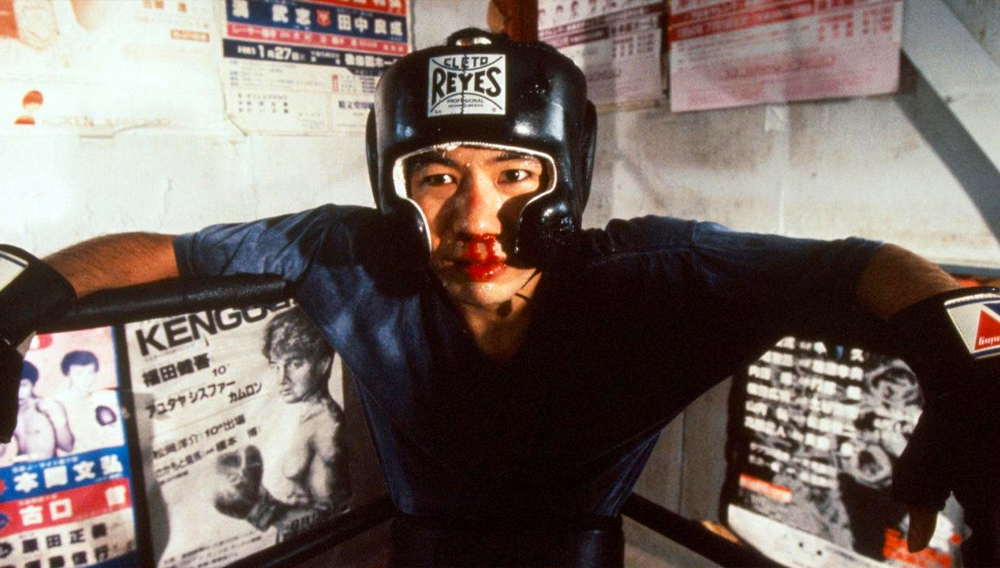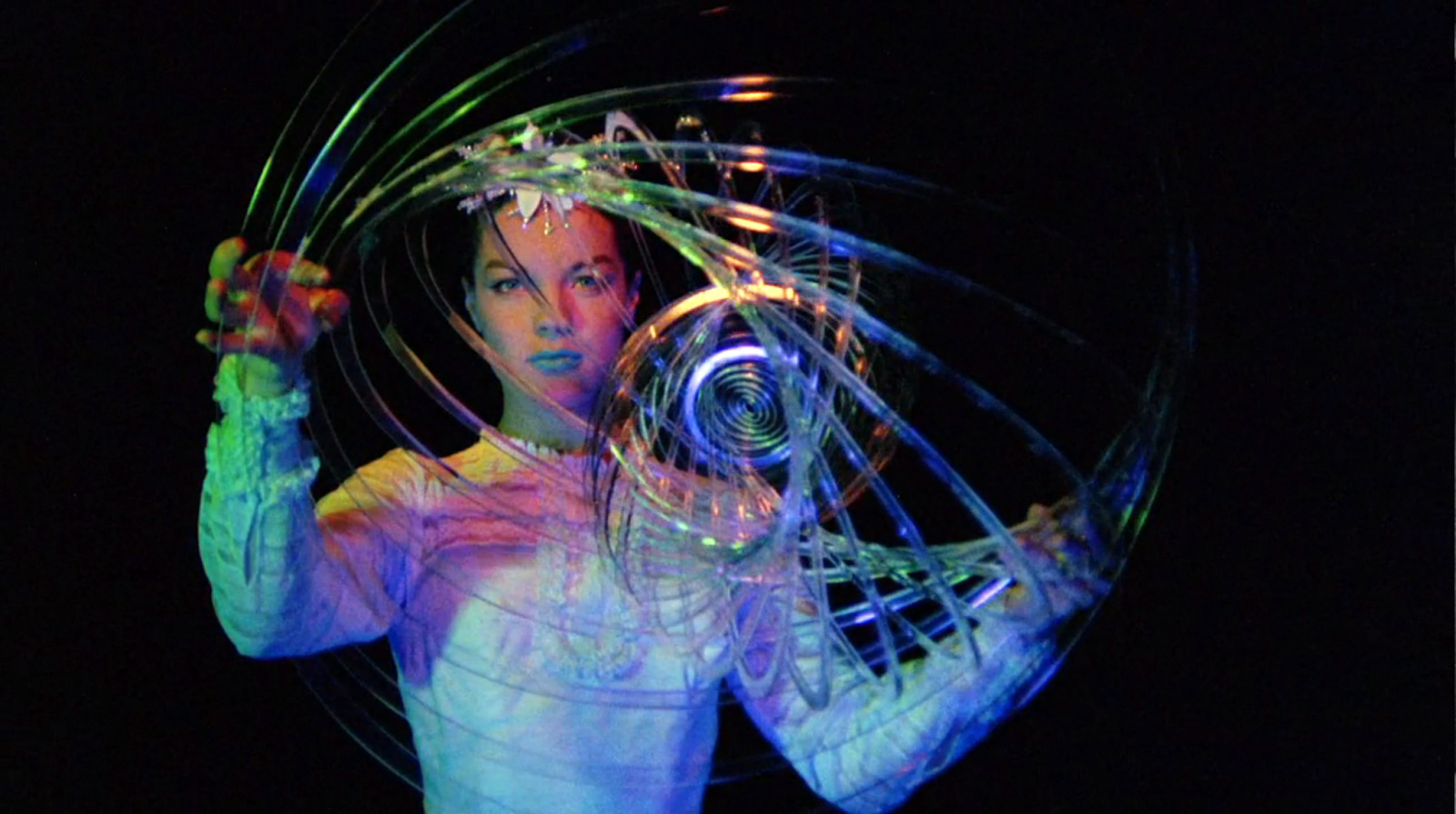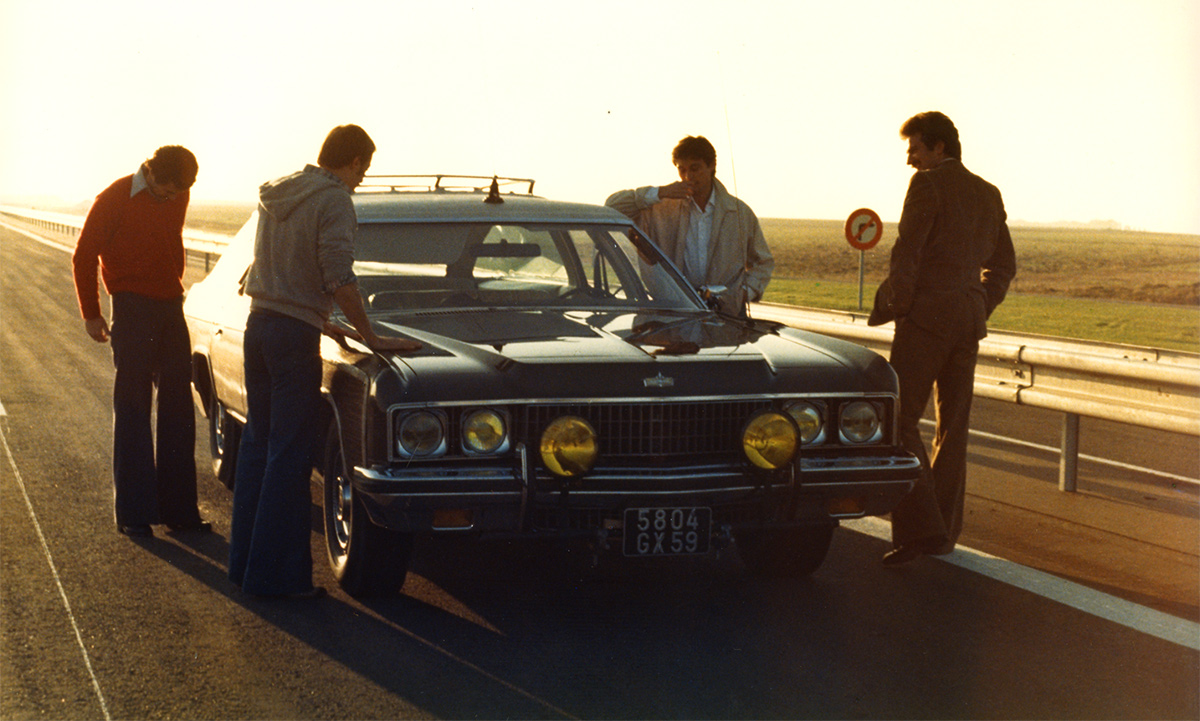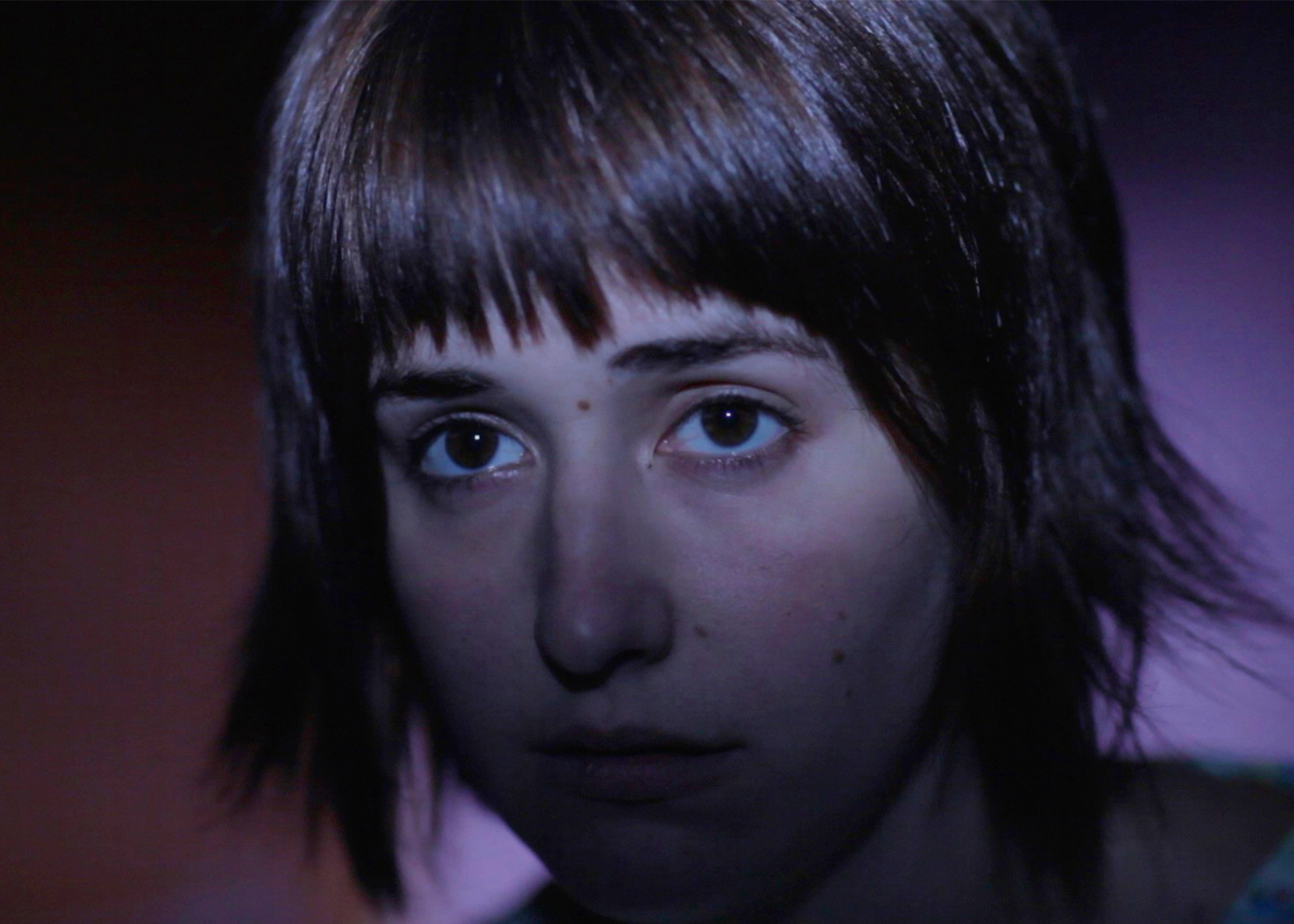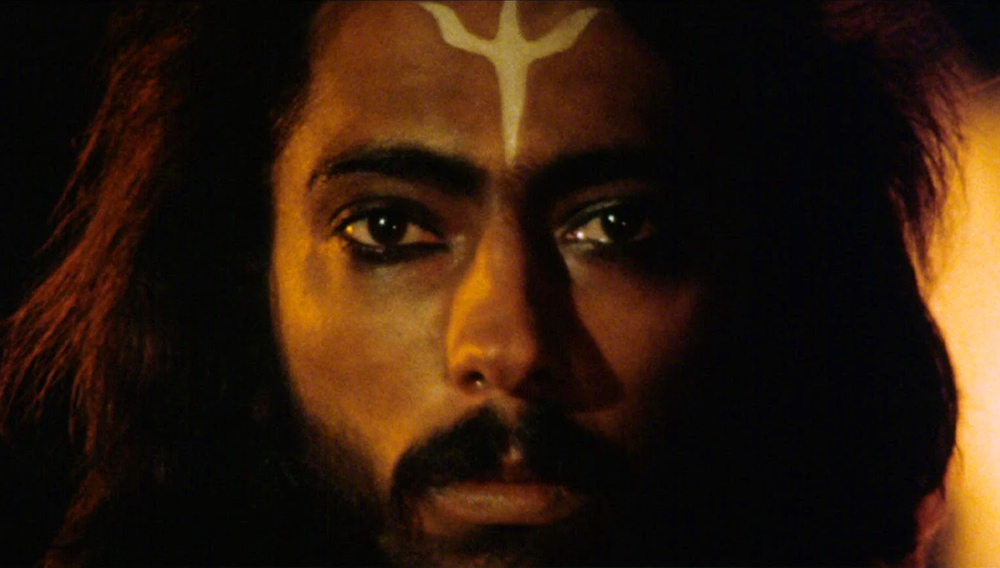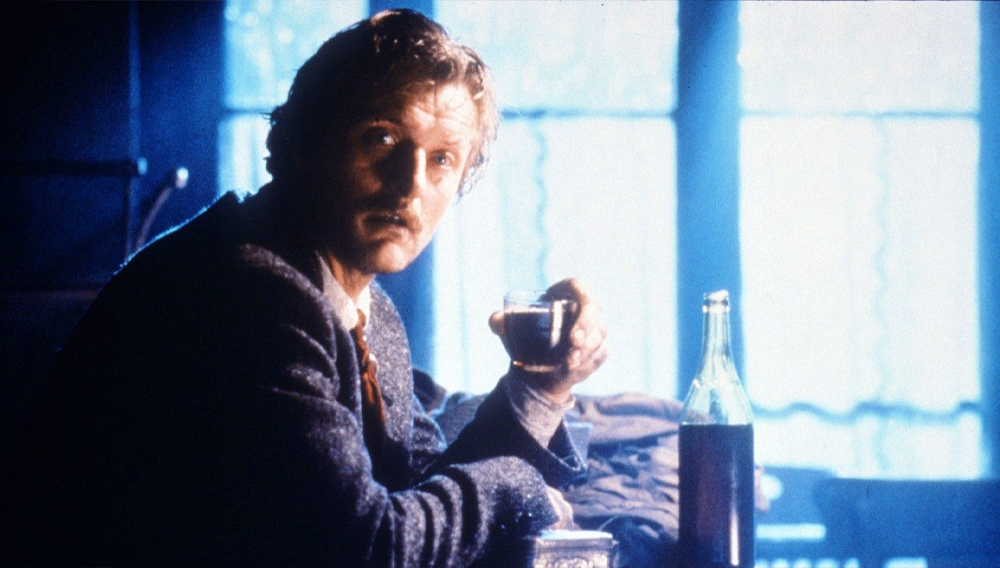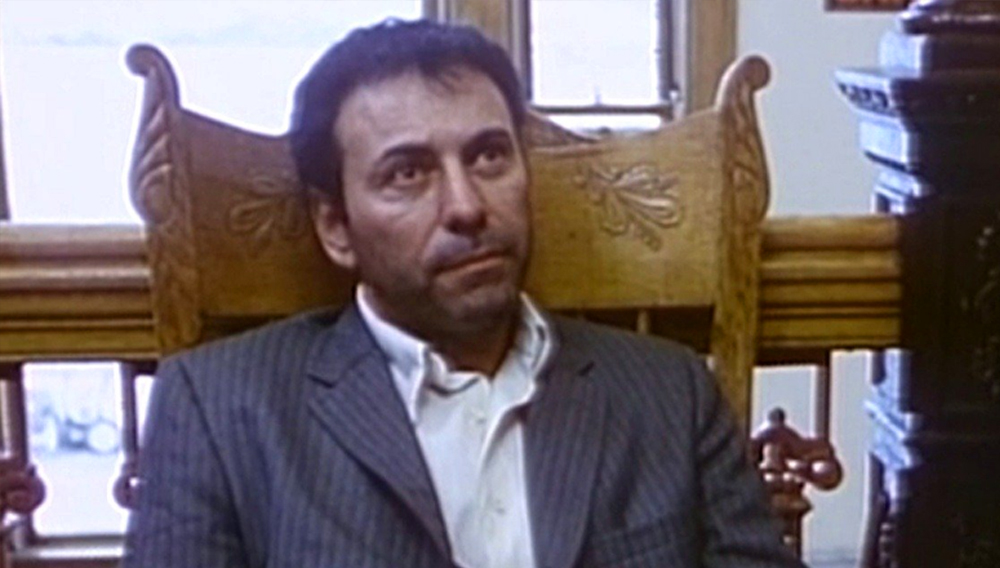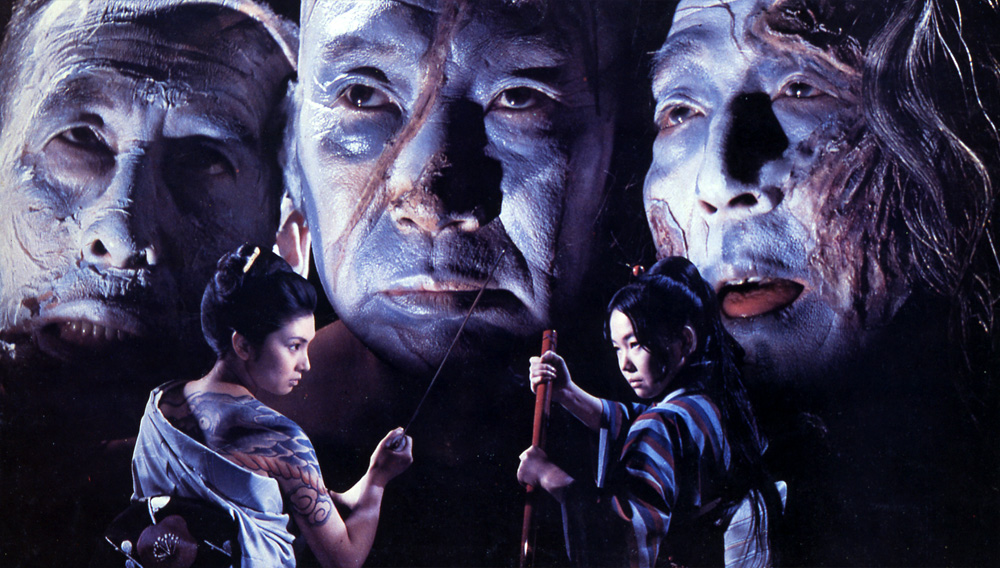Joe Swanberg originally made his name with micro-budgeted, improvised films made on grainy digital video. One of the original directors given the “mumblecore” label, he quickly drew both applause (the New Yorker’s Richard Brody has been a longtime champion) and disdain. It may have been possible to miss the “art” in his Maurice Pialat/Jean Eustache-styled early work, but as Swanberg has stuck with filmmaking, the craftsmanship has become more obvious, as has his refusal to work on the large canvas most narrative filmmakers generally use. His latest theatrical release and most mainstream film, Drinking Buddies, is set around a Chicago artisanal brewery. It addresses the ambiguous lines around friendship and attraction between brewery workers Kate (Olivia Wilde) and Luke (Jake Johnson), as both friends test the boundaries of their relationships with Chris (Ron Livingston) and Jill (Anna Kendrick), respectively. Working for the first time with stars, Swanberg’s storytelling remains anecdotal, perhaps as a result of working without a script. The prolific director has landed in an intriguing position. Swanberg’s newest film, Happy Christmas, makes its debut at Sundance.
Keyframe: Were you able to use improvisation with a name cast?
Swanberg: I was. That was part of the project from the very beginning. I think that was a big part of the reason why these actors were excited to come into the project.
Keyframe: You were very upfront about that?
Swanberg: The casting process was very conversational, because there was no script. Half of it focused on the themes and story. The other half was a lot about the process and how the shoot would go.
Keyframe: How were you able to finance the film without a script?
Swanberg: It was difficult. My producers really killed themselves exploring every single option. It ended up being CAA’s indie finance division and my producers. It was a risky investment because no one knew quite what they were going to get out of it. It helped to have a name cast involved, but there was a very long period where I thought we were not going to get to do the movie.
Keyframe: Do you think of your films’ narratives as akin to short stories?
Swanberg: Maybe. There was a period when I did, around 2010. I was producing work so quickly, and a lot of the films were between fifty and seventy minutes long. That year’s films are like a short story collection. If you watch them together, they talk to each other in a way that’s more interesting than watching them independently. There’s a DVD box set containing most of them, and then there a few separate ones, like Uncle Kent and Autoerotic.
Keyframe: How have you been able to keep up such a prolific pace?
Swanberg: I like doing it. Making a movie is never a chore for me. I find it really thrilling to be on set, working with actors and telling stories. That’s part of it. Also, the fact that there’s no screenwriting process allows me to work quickly. For a lot of writer/directors, there’s downtime because they have to write a script. For me, there’s carryover into the next project through discussions with the actors. I’m often bringing several of them into the next one.
Keyframe: Do you feel like there was ever much point to the ‘mumblecore’ label?
Swanberg: Weirdly, it was useful as a marketing tool. That’s not what journalists figured when they started using it. As the years have passed and I’ve thought about what that word meant, I feel really lucky to have been associated with it, because almost every film uses its cast as its main marketing tool. You cast well-known actors who can go on TV and promote the film. We were making small films, often with non-professional actors. ‘Mumblecore’ became the marketable face of the movie. It was the hook journalists could use to talk about it. I don’t think many people would have seen the films otherwise.
Keyframe: I remember the ‘mumblecore’ week at the IFC Center.
Swanberg: That made it a big deal. It also led to a backlash and a lot of anti-mumblecore sentiment over the next few years. I speak at universities and hear from film students and sense that the word has gone through waves. There was a period where it was a dirty word. Now it’s been re-appropriated as a positive word. A lot of younger filmmakers are self-applying to their own films. I suspect at this point, it’s going to be around for a very long time.
Keyframe: There are a lot of people who seem to dislike ‘mumblecore,’ but your films in particular seem to generate negative reactions. Do you have any idea why?
Swanberg: The obvious answer is that people just don’t like them. They’re not the easiest movies to like. I’ve been making them since I was really young, so I probably helped perpetuate some negative connotations by doing interviews since I was twenty-two and saying a lot of obnoxious, bratty things when I was a kid. They deal with sex a lot, which is typically an uncomfortable subject for people. I know that’s been a lot of the focus of negative criticism. Because I’m in the films, I’ve made myself a target. If I’d always cast actors instead of myself, it would be harder to go after me, but because I’m such a focus of them, I’m easier to go after. I feel pretty grateful that it all happened. I’m thirty-one now, and I’ve been through the worst of it. There’s nothing more that can be said about me, my movies or my collaborators that hasn’t already been said in a very negative, aggressive way. So I‘m excited to still be young and have gotten the worst of it over with. None of it hurts me anymore. I feel detached and liberated. I don’t even know Glenn Kenny. I know he’s someone out there who hates my movies. I don’t read what he writes or follow him on Twitter. Other than what I hear from people, I have literally no idea who the guy is or what’s going on with him. He’s just a name that comes up.
Keyframe: What do you think what happen if you talked to him?
Swanberg: Maybe I’d absolutely see his point about everything he dislikes about my movies, but film criticism is not that exciting to me as a filmmaker. There was a point earlier in my career where I was not only seeing a lot of movies but reading a lot of film criticism. I wanted that world to embrace me because I felt like I was making movies for them. I felt like critics and the festival world were the kind of sophisticated arthouse audience I wanted to work for, but the more of them I’ve gotten to meet, the more I’ve realized it’s the least interesting audience for any work. They have a job to do, and that doesn’t always overlap with sophisticated, interesting readings of my work. Most of these guys have to go screenings and then crank out reviews the next day to meet deadlines. It’s not the generous, intellectual world I suspected it was when I was in film school. I basically have no interest in it.
Keyframe: On the other hand, people like Dan Sallitt and Richard Brody have been very supportive of your work.
Swanberg: They have, but they’re also guys who’ve made movies. In general, film critics who are also or have been filmmakers know what they’re talking about and are more generous because they know how hard it is. There’s a tone in their writing that’s much less dismissive even of movies they dislike. I’ve checked out completely from reading film criticism, but I did read Brody’s Godard book, which was very helpful. I like watching Dan’s movies.
Keyframe: Why did you cast yourself as the angry man in the car in Drinking Buddies?
Swanberg: That was a practical decision. There were certain actors I thought would be really funny in that role, and they just weren’t available, so I jumped in myself. In terms of the other stuff, there’s a specificity I can bring to it when I act in myself, because I know exactly what I wanted to do. There’s a practical side. I don’t have to pay myself. I know I’m going to be there. I’m a very easy actor to cast.
Keyframe: Truffaut did that with The Wild Child. That’s the main reason he cast himself.
Swanberg: When you’re operating on a low budget, you’re trying to eliminate as much stress as possible. I think that’s why so many of us act in our own films, like Mark Duplass, Andrew Bujalski and Alex Ross Perry. There’s a fluidity and ease of production when you can be one of only a few people on set.

